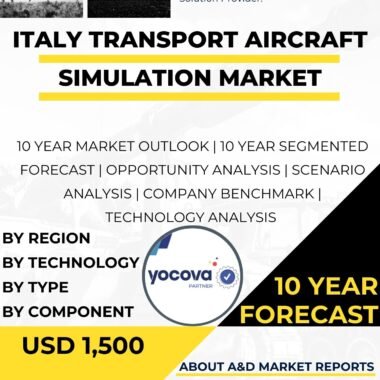Description
Brazil’s SISFRON Program and Its Role in Advancing Unmanned Ground Vehicles
Brazil Unmanned Ground Vehicles market is significantly bolstered by the Integrated Border Monitoring System (SISFRON), a strategic initiative to enhance border security and integrate advanced robotic platforms. This program drives the adoption of UGVs for surveillance, reconnaissance, and logistics, supporting Brazil’s defense modernization while fostering indigenous innovation and regional cooperation.
SISFRON’s Integration of UGVs for Border Security
SISFRON, launched to secure Brazil’s 16,886-km land border, incorporates UGVs to enhance surveillance and rapid response along remote frontiers, particularly in the Amazon. Equipped with EO/IR sensors, radar, and encrypted communication systems, UGVs like the Agrale Marruá-based robotic platforms conduct autonomous patrols, detecting illegal trafficking and border incursions. These systems, tested in 2024 exercises along the Paraguay border, provide real-time data to command centers, improving situational awareness and reducing risks to personnel.
Indigenous Development and Local Industry
The Brazilian Army collaborates with local firms like Agrale and Embraer’s Savis to develop UGVs tailored for SISFRON. These platforms, featuring modular payloads for mine detection and logistics, incorporate AEL Sistemas’ vetronics for navigation in dense jungle terrains. Local production at facilities like Agrale’s Porto Alegre plant achieves high indigenous content, aligning with Brazil’s self-reliance goals and creating skilled jobs in the defense sector.
Enhancing Operational Capabilities
SISFRON’s UGVs support diverse missions, including IED clearance and supply transport, complementing the Guarani 6×6 fleet. Their ability to navigate challenging environments, such as wetlands and forests, ensures operational continuity for infantry units. Integration with satellite and drone networks enhances data fusion, enabling commanders to coordinate joint operations effectively.
Regional Cooperation and Export Potential
SISFRON’s success positions Brazil as a leader in UGV applications, with potential exports to South American neighbors like Colombia and Peru. Participation in multinational exercises, such as Operação Amazônia, showcases UGV interoperability, strengthening regional security ties.
In summary, SISFRON’s integration of UGVs enhances Brazil’s border security and ground defense capabilities, driving indigenous innovation and regional leadership. By addressing technical and regulatory challenges, Brazil strengthens its position in the global UGV market, supporting both military and humanitarian objectives.




